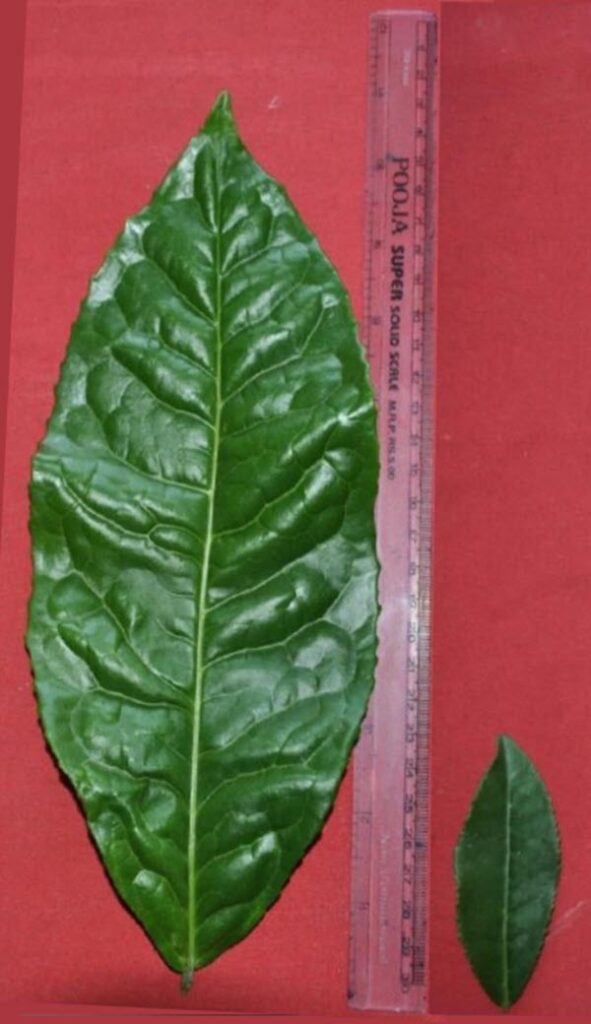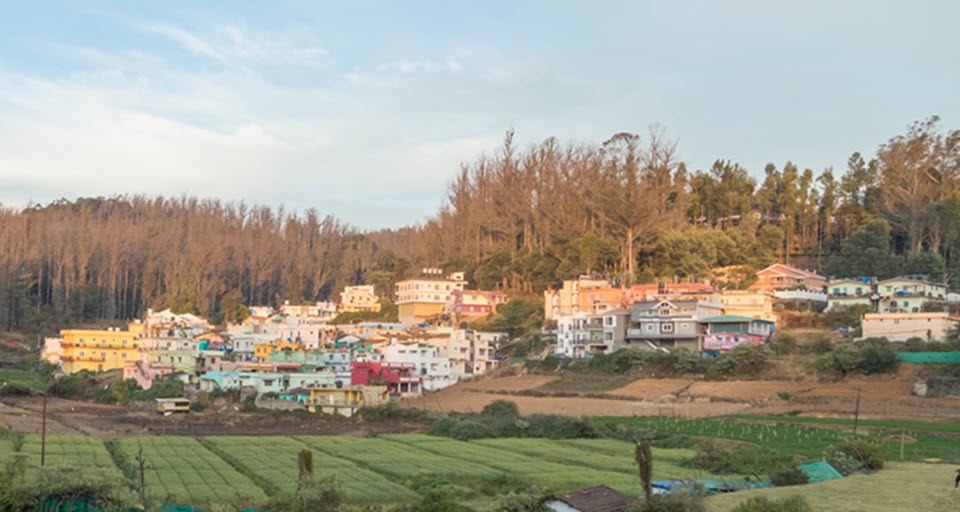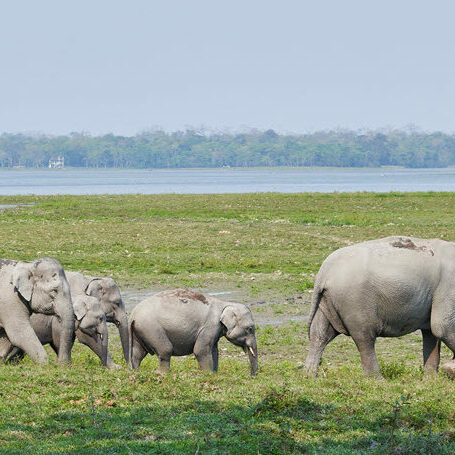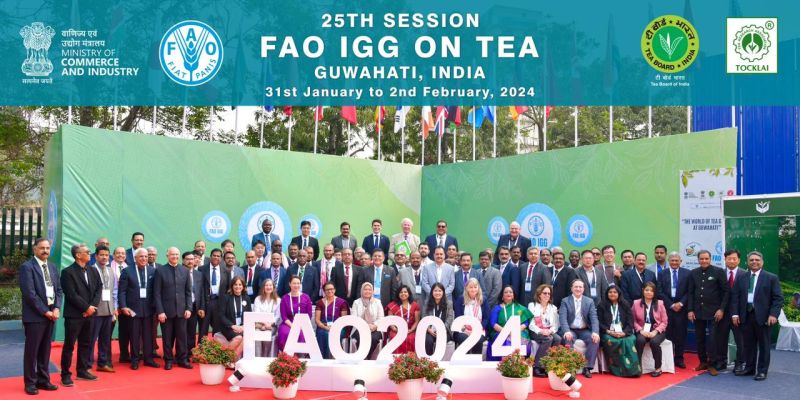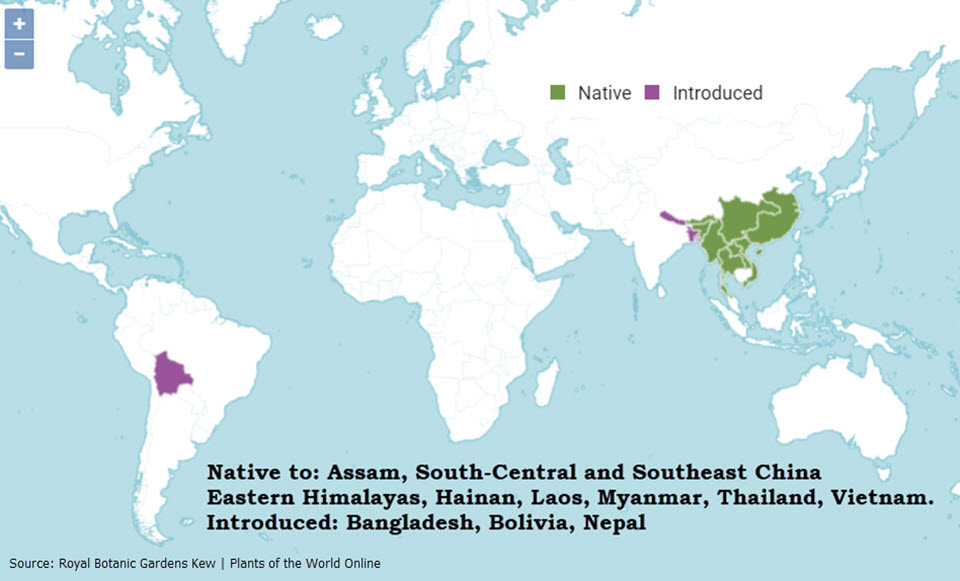
Assamica is One of Five Distinct Genetic Tea Populations
By Roopak Goswami
A study published in the Journal of Plant Beverage Research reveals new Camellia sinensis assamica varietal traits. Researchers from India and China have worked on this study using 150 SNP markers and population genetics tools to conclude that Assam tea is unique. Researchers identified five distinct genetic populations independently domesticated from a western cluster of wild tea trees rather than introduced from a single origin. The varietal grown in Assam differs from the eastern cluster grown in Yunnan. This new understanding presents new possibilities for cultivating new hybrids bred from Assam tea.
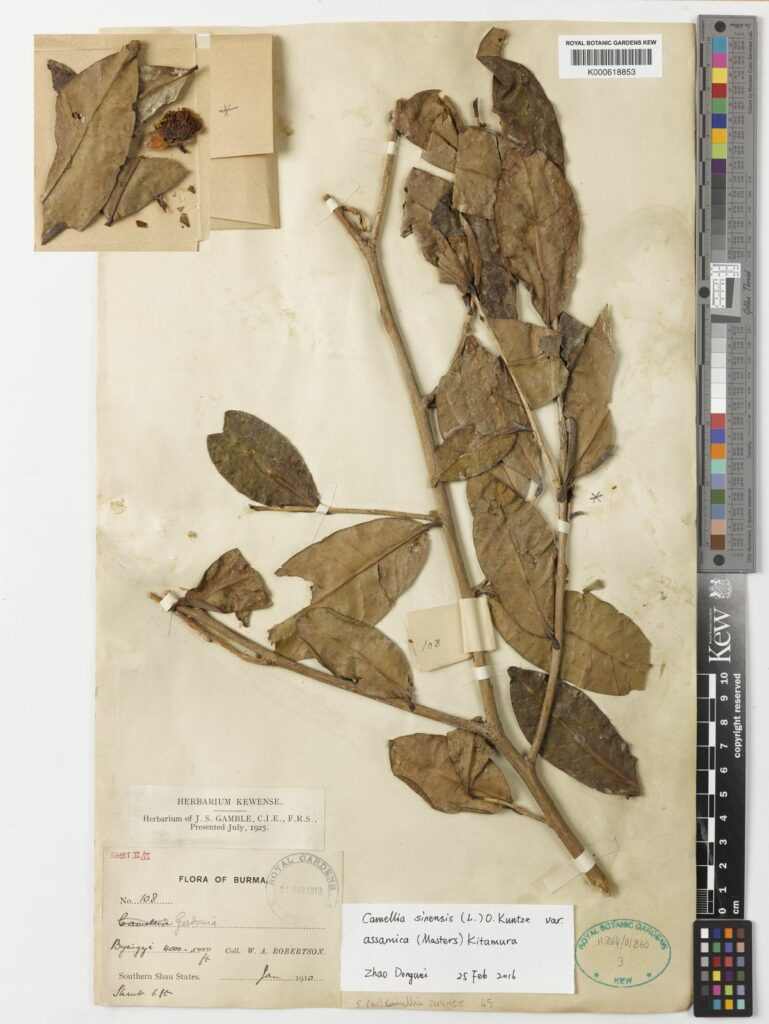
While there is a reasonable consensus regarding China type (var. sinensis) and Assam type (var. assamica), the classification of Assam tea needs to be clarified. Scientists associated with the study say it is essential to understand further the genetic diversity and population structure in c. assamica for efficient conservation and use of Assam tea germplasm in crop improvement programs. The objectives were to understand the genetic diversity and population structure in the Assam tea germplasm from India and China and to assess the efficacy of the current classification system for tea.
The present study used 150 Single Nucleotide Polymorphism (SNP) markers to analyze a representative set of Assam tea sampled from Assam, India, and from four ancient tea gardens in China. SNP markers are the most efficient molecular markers, helping scientists locate genes associated with essential characters. A total of 252 teas sourced from Assam, India, and China were used in the investigation.
Scientists from China, the USA, and India employing cutting-edge techniques and population genetics tools have shown at least five distinct var. assamica populations in their primary gene pool. These include:
1. India var. assamica, which is distributed in Assam, India,
2. Cambod type from Indochina, but the exact origin and distribution are not yet identified,
3. China var. assamica from Southwest Yunnan (leaves from Jingmai and Mangshi),
4. Jingping, Honghe district, Yunnan and
5. Malipo, Wenshan district, Yunnan.
Assam growers contribute around 12% of the world’s tea annually and are known for the large quantities of second flush leaf harvested in May-June. Made tea is characterized by its boldness and robustness and is topped with classic malt and woody astringency flavors. It is valued for its rich taste and bright liquors and is considered one of the world’s choicest teas. Because of its high caffeine content, Assam tea is marketed as a breakfast tea.
The study says that despite the joint adoption of the two botanical varieties (C.s. var. sinensis and C. s. var. assamica) by the tea research community, the genetic basis for the current classification system for Assam tea germplasm has yet to be comprehensively clarified. Several studies based on molecular markers have provided contradictory results.
“Our result confirmed that the wild trees found in Assam are indigenous to Assam and ruled out the possibility that they were introduced from Southeast Asia or China.”
In general, tea in India Assam is known for its high polyphenol content, broad leaf, and adaptability to hot and humid climates. In contrast, the Chinese small-leaf variety is well known for its hardy adaptability to many environments, high theanine content, and small leaves.
“The main finding is that Assam tea is unique and has separate centers of origin. Although the Assam tea available in Yunnan in China has a bigger leaf size, it is different from the Assam tea available here in Assam,” writes Dr. Devajit Borthakur, a study co-author. Borthakur is a tea breeder and was the principal investigator at Tocklai when he did research in the USA.
“The specialty of Assam tea lies in its unique genetic architecture,” says Borthakur, who holds a doctorate from Zhejiang University, Hangzhou, China.
“A thorough understanding of the genetic architecture of the popular Assam clones, including 154 garden series clones and at the same time, their blending compatibility need to be worked out to exploit the uniqueness of Assam Tea. TV-23, the most popular tea clone, does not reflect the true Assam character as the clone is a hybrid between the Assam and Cambod types, he says.
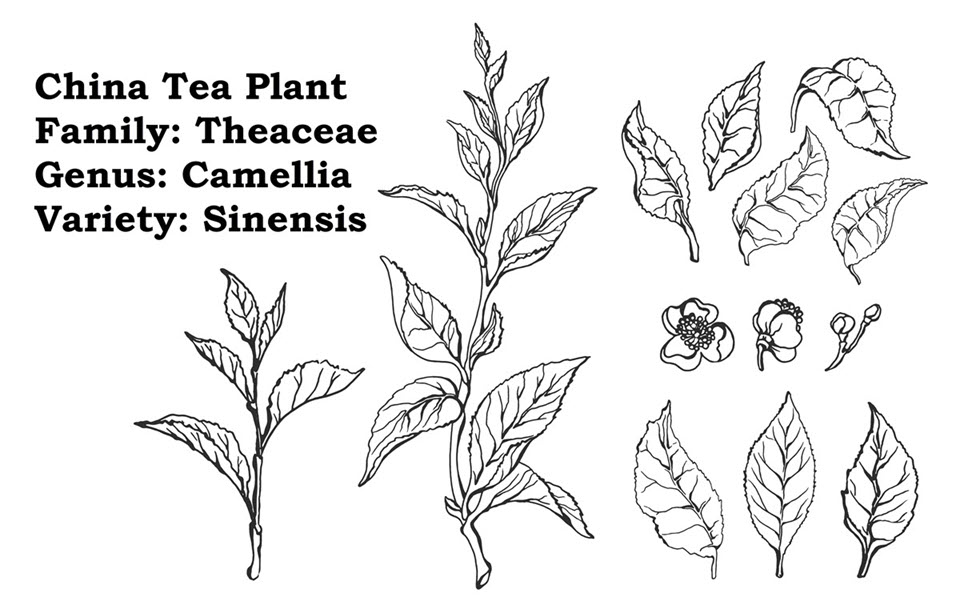
Related
The Clone Wars – Charge of the Assamica Plant
“The diversity among the Assam type tea in different tea growing countries is yet to be exploited. In tea, 80% heterosis (the superior performance of a hybrid progeny over the parents) is reported. Thus, there is a huge potential to improve tea’s yield, quality, and tolerance capacity if the breeding program includes the diverse tea germplasm available in different tea-growing countries. “Mutual exchange of germplasm between Yunnan in China and Assam in India and inclusion of this germplasm in tea breeding program may open up new possibilities,” he said.
“In conservation of genetic diversity, the important issue is that there should not be any duplication. Otherwise, the population size will be too big, and expenses and time will be well spent on maintaining the duplicated germplasm. To avoid duplication, it is essential to understand the exact genetic architecture of the germplasm. The panel of 150 molecular markers developed in our investigation is sufficient to avoid duplication in germplasm conservation of tea,” Borthakur said.
There is no doubt that China is the first center of domestication for tea, which can be traced back more than 2000 years ago. However, the hypothesis was that new studies, including the present one, did not support domesticated tea dispersed from China to India and Southeast Asia. Local people in Northeast India and Southeast Asia also domesticated tea using their indigenous wild tea populations.
“Our result confirmed that the wild trees found in Assam are indigenous to Assam and ruled out the possibility that they were introduced from Southeast Asia or China,” researchers say.
The study showed that research is still needed on the wild teas in Assam, the neighboring Northeast Indian states, and the countries extending south of China. “The distribution of genetic diversity in the Assam tea germplasm must be systematically collected and analyzed. The panel of 150 SNP markers developed in this investigation will help accomplish the task efficiently,” Borthakur said.


